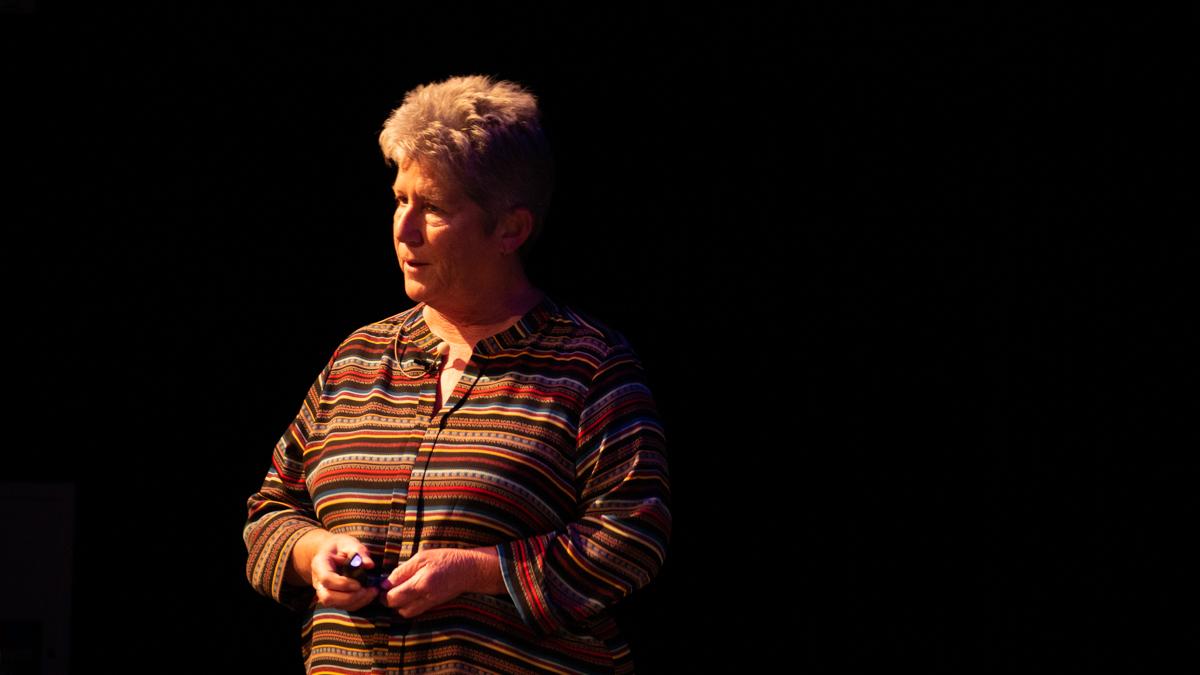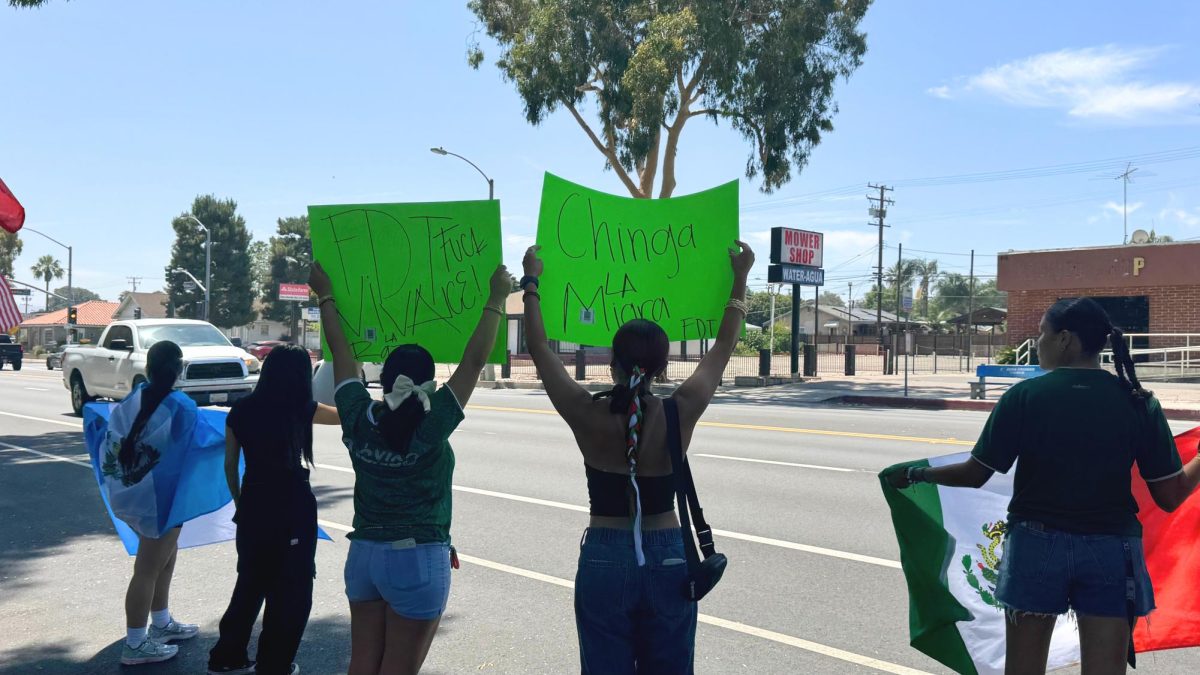By Erik Galicia
Correction: In a previous version of this story we incorrectly ran a headline that stated Doctors Without Borders took place at Riverside City College. Doctors Without Borders actually took place in The Box Theater in Downtown Riverside.
In 2002, Karen Stewart, a mental health officer for Doctors Without Borders, lost her sister to suicide. After working through the denial and devastation that resulted from the death of her only sibling, Stewart’s acceptance of her loss was not without an altered perception of her own life.
“Life is short,” she told Riversiders at The Box theater on Nov. 6. “So I asked myself, ‘Have I done everything I’ve wanted to do if I were to die tomorrow?’ And the answer was no.”
Doctors Without Borders is a nonprofit organization that provides medical care to the parts of the world that need it most. With 33,000 workers spread across 70 countries, they operate with neutrality and independence from government in order to reach the active war, endemic and natural disaster zones that other organizations do not. The organization treats injuries, performs surgeries and provides vaccinations and mental health counseling.
Since the loss of her sister, Stewart has provided mental health services to at-risk communities in nine countries. In 2004, she arrived at an HIV and AIDS clinic in Lagos, Nigeria, which was being devastated by the virus.
“One of the obstacles we had is that people waited too long to come,” Stewart said. “I actually saw people arrive at this clinic in wheelbarrows. People would enter our clinic and die because they waited so long.”
Stewart told the story of a woman who only found out she was HIV positive after her husband died of AIDS, which she explained was a common occurrence.
“She came in with a lot of anger and grief,” Stewart said. “So we taught her a breathing technique to establish a sense of calm and safety within her.
“And then we took it a step further. We helped her put that emotion of calm and safety into (a) bracelet. Then later on that night, if she wakes up, her mind is racing, she can go get that bracelet and hold on to it and it will help her restore a sense of calm and safety.”
According to Stewart, the clinic provided HIV medication to 100 people when she arrived. By the following year, the clinic was providing medication to 1000 patients.
Stewart also spoke about her work with a 14 year old girl who was raped on a road leading to her home in Papua New Guinea. The attack left the child with severe trauma and an intense fear of the road. Through exposure therapy, the team was able to help her overcome her fear in small increments.
“It starts in the clinic, having the girl visualize walking on that road before the rape happened, feeling strong and confident that this is her road and her home,” Stewart said. “The next step is to have her physically walk that road with other people. She asked people to support her and the entire village came with her on this walk. It was amazing to see them all walking with her.”
The groups walking with the child were reduced over time, until it was just her and her mother.
“Eventually she was able to walk that road, courageously, powerfully by herself,” Stewart said.
The organization’s speaker series has been touring the West Coast to present its humanitarian work to the public and personally thank its donors for what their contributions have accomplished in the world. Stewart relayed a message of compassion and the belief that all people should have access to healthcare.
“We’re all just trying to make it,” Stewart said. “(Doctors Without Borders) truly believes that healthcare and medicine are matters of justice, not charity.”













